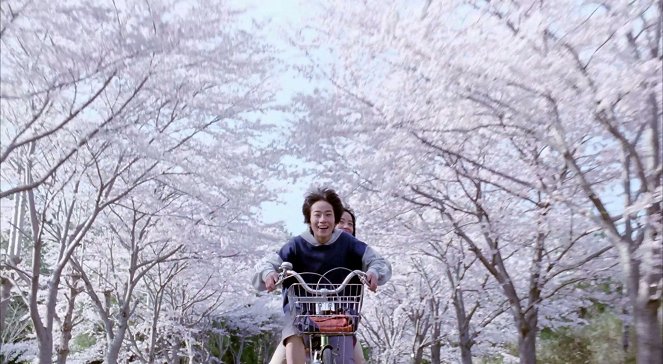Rendező:
Hirokazu Kore'edaForgatókönyvíró:
Hirokazu Kore'edaOperatőr:
Mikiya TakimotoZeneszerző:
Yōko KannoSzereplők:
Haruka Ayase, 長澤まさみ, Kaho Indou, Suzu Hirose, Jun Fubuki, Kirin Kiki, Shinobu Otake, Lily Franky, 堤真一, Ryō Kase, Ohshirô Maeda, 鈴木亮平, 坂口健太郎, Midoriko Kimura (több)Tartalmak(1)
A 29 éves ápolónő, Szacsi anyaként gondoskodik két húgáról, a 22 éves Josinóról és a 19 éves Csikáról. Apjuk még évekkel ezelőtt hagyta el a családot egy másik nőért, anyjuk pedig követte a példáját, és lányait hátrahagyva elköltözött egy férfival. A lányok most nagyanyjuk házában élnek együtt. Egy nap meghallják, hogy apjuk meghalt, és nem túl nagy lelkesedéssel, de elmennek a temetésére. Itt váratlan meglepetés várja őket: megismerkednek a 13 éves Szuzuval, a féltestvérükkel, akinek a személyisége mindhármukat azonnal megbabonázza. Szacsi felajánlja Szuzunak, hogy költözzön hozzájuk... (FilmNow)
(több)Recenziók (3)
(BE2CAN, Evald) In the end I gave up and fell asleep, incredibly empty.
()
The coexistence of a quartet of (step)sisters, the veranda of their old wooden house as a cementing point between them, and two funerals. Kore-eda's inimitable talent for moving without even the slightest hint of any cheapness, pandering or emotional blackmail (and there are several scenes and themes that invite tear-jerking and would not have been avoided by other director or screenwriting aces) is felt here more than ever. No drama, no conflict, no great love or life twists, no plot. Only what more erudite reviews have aptly described as "the tired poetics of the everyday". It may not be to everyone's taste, and does run the risk of stretching two hours of "nothingness" into several interminable days, but I was totally won over. It was like sitting on that porch in the freezing cold, the spring thaw, while picking plums.
()
I read an opinion below that this is a small film with a big heart, which I think is a description that fits the Japanese film perfectly. It's not spectacular, it's rather intimate, but it's not anything that tries to emotionally blackmail you. It's modest and it simply shows how human relationships can evolve, either through encounters or in the context of the death of loved ones.
()

